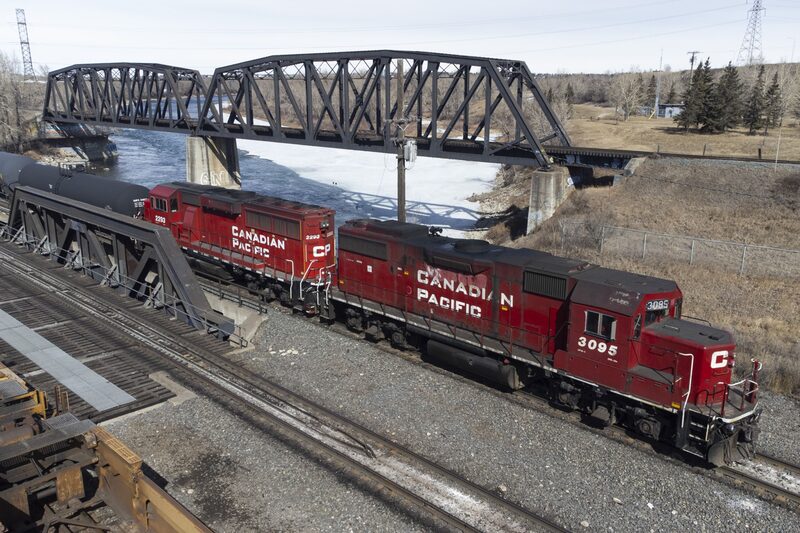Bloomberg — Canadian Pacific Railway Ltd. (CP) received a green light to complete its $27 billion acquisition of Kansas City Southern, overcoming opposition from shippers and creating the only rail operator serving the US, Canada and Mexico.
The deal is consistent with the public interest, the US Surface Transportation Board, which has sole authority to approve rail deals, said Wednesday in a report. The combined operations will have “little to no track redundancies or overlapping routes,” it said.
The approval comes with some conditions, including an obligation to keep gateways open to other railroads, to provide a dispute resolution mechanism to address commuter disruptions in Chicago and a seven-year oversight commitment to address any issues that arise from the acquisition.
Canadian Pacific’s US shares climbed 6.9% — the biggest jump in almost three years — to $78.08 as of 9:44 a.m. in New York.
The decision comes despite heightened scrutiny of the US rail industry in the wake of a series of derailments, including a toxic chemical spill in Ohio, and tense relations between company management and labor groups. Canadian Pacific’s financial transaction to acquire Kansas City Southern’s shares was wrapped up in December 2021, but the railways were required to continue operating separately until the board gave final approval of the deal.
Still Smallest Major
The combination enlarges Canadian Pacific’s network by 50% to about 20,000 miles of track from Vancouver to Veracruz, Mexico. Keith Creel, chief executive officer of Canadian Pacific, has said that the additional track opens the railroad to new customers and offers the prospect of luring more truck traffic to trains. Even after the tie-up, Canadian Pacific will still be the smallest of the major railroads that operate in the US and Canada.
The takeover will likely mark the end of the consolidation among large railroads in North America for the foreseeable future. It was grandfathered under an older, more relaxed set of rules that only applied to Kansas City Southern, the smallest of the so-called Class I railroads. Other mergers would have to meet a much tougher standard that was adopted in 2001 to cool a flurry of deals after the rail industry was deregulated in 1980.
Shippers were among the loudest critics of the acquisition of KCS, which they fear will lead to higher prices and reduced service as a result of more concentration of ownership. The US Justice Department also opposed to the merger, but it doesn’t have regulatory power to approve or deny railroad deals.
The industry, which once had more than 30 large railroads, now only has six. With this latest deal, the network is balanced with two railroads in the eastern US, two in the western US and two Canadian rail operators have main lines that extend to down to the US Gulf Coast.
Canadian Pacific also gains access to Mexico operations that KCS purchased after the Mexican government privatized its freight rail system in the late 1990s.
The STB cited the two railroads’ operations limited overlap as a key reason for its decision. It had quashed an attempt by Canadian National Railway Co. to snatch away Kansas City Southern with a higher bid in August 2021. The regulator determined that extensive overlap in that prospective deal would have harmed competition.
--With assistance from Leah Nylen
Read more on Bloomberg.com

